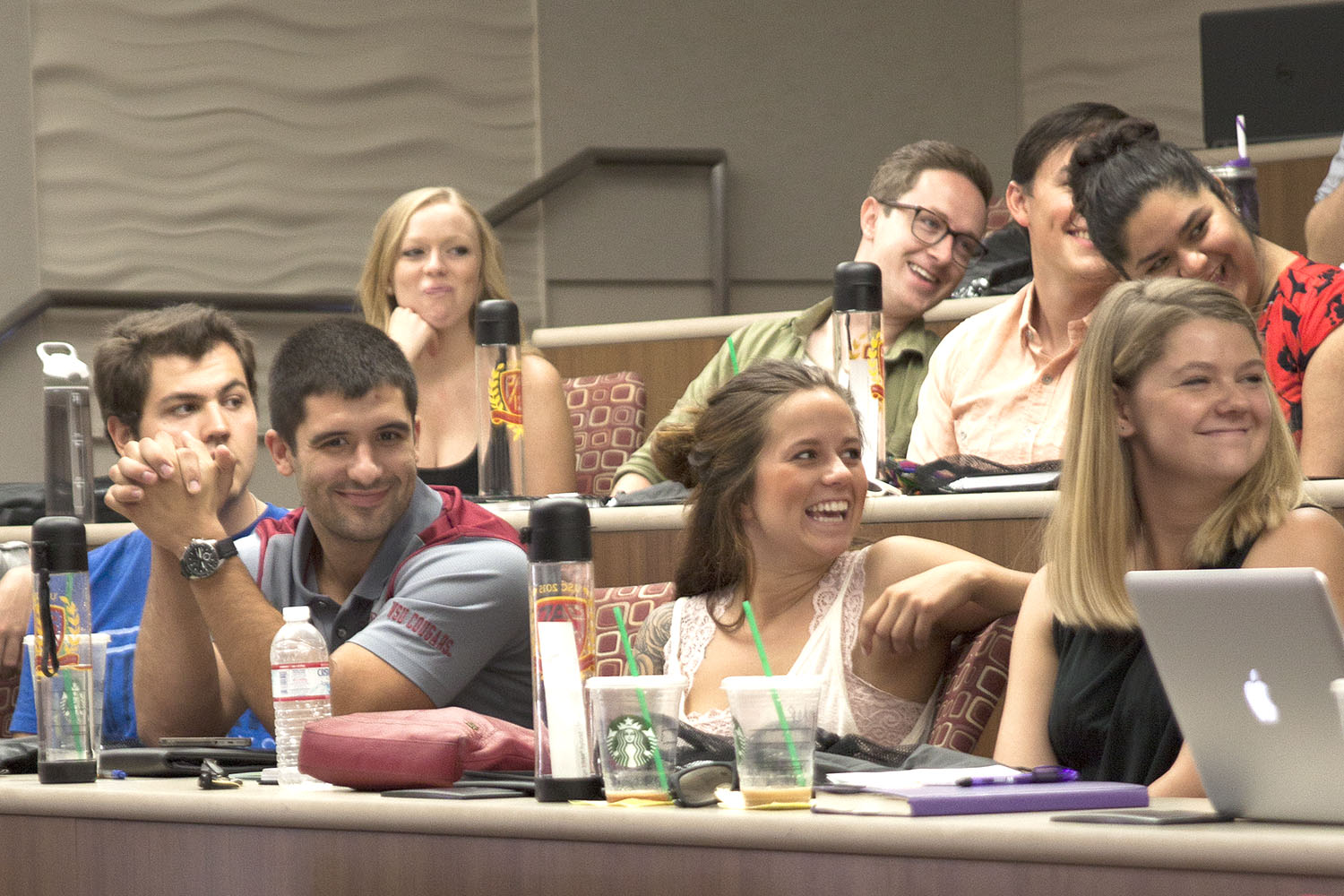Student government hosts Pac-12 Leadership Summit

Pac a punch · Pac-12 student government leaders discussed university issues and figured out how to best tackle initiatives at the conference. Workshops and discussions were held in the Ronald Tutor Campus Center. – Jessica Zhou | Daily Trojan
Undergraduate Student Government hosted the third annual Pac-12 Student Leaders Summit from Friday to Sunday.
The summit was created in 2013 by the University of Utah with the aim of furthering networking and communication between Pac-12 Schools.
USG President Rini Sampath pitched the idea of hosting the event during last year’s summit at Washington State.
“Last year, when I went to the summit as vice president, I pitched the idea of USC hosting the conference because I love the idea of hosting an event which could not only elevate the prestige of student government here at our university, but it’s an opportunity for us to connect with other student governments and learn from them,” Sampath said.
The summit hosted representatives from every university student government in the Pac-12 except for University of Arizona, Arizona State University and University of California, Berkeley. Despite the absence of three schools, the conference had the highest overall attendance of any Pac-12 Summit so far.
Stanford University Student Body President John-Lancaster Finley, whose school was attending the summit for the first time, attributed this high attendance to how USG members successfully networked with the other schools and made attending the summit a priority.
“My vice president and I went to the national summit at the White House, and that’s where I met Rini,” Finley said. “Rini really pushed [the summit], and I was like, ‘Okay, I’ll be there.’ I probably wouldn’t have gone if I didn’t have a personal relationship with Rini.”
Finley also cited that the current lack of conference communication within the Pac-12 as a major reason he wanted Stanford to attend the summit this year and in the years that follow.
“Next year, I’m going to make sure whoever is my successor comes to [the summit] because I think it’s hugely important,” Finley said. “Especially because we have literally zero conference interaction, which I know other conferences do pretty strongly. In the Pac-12, we’re leaders in pretty much all other areas a conference can be a leader in, but in collaboration among the different schools not so much, and I think it’s very exciting to see that as a possibility.”
The weekend contained a large variety of activities in order to foster communication between the student leaders. Activities included workshops on topics such as marketing, sexual assault prevention and diversity where different student governments could share their unique experiences.
University of Utah Student Body President Ambra Jackson stated that it was activities like these that she found the most useful since it gave her the chance to learn how other universities dealt with similar issues in different manners.
“I would say the most enlightening part [of the summit] is just learning about what campus issues are more relevant to everyone else — for example, mental health,” Jackson said. “On some campuses they have more resources. [We learned] about those differences and how each student leader works with his or her administration to combat those in a proactive manner.”
Athletic Director Pat Haden and Unruh Institute of Politics Director Dan Schnur delivered keynote speeches at the summit. In his keynote speech, Schnur expressed admiration for the event and how he saw student leaders from all of the attending schools making a change by being involved in their respective student governments.
“Most old people would tell you that you represent the next generation of leadership, and I don’t think they realize exactly how condescending and patronizing that sounds,” Schnur said. “I would suggest to you that you’re not the next generation of leadership. You are the current generation of leadership. You have already assumed these responsibilities not just on your campuses, but in your surrounding communities. And rather than needing to be told by some 50-year-old white guy that someday it‘s going to be your turn — it is your turn.”
